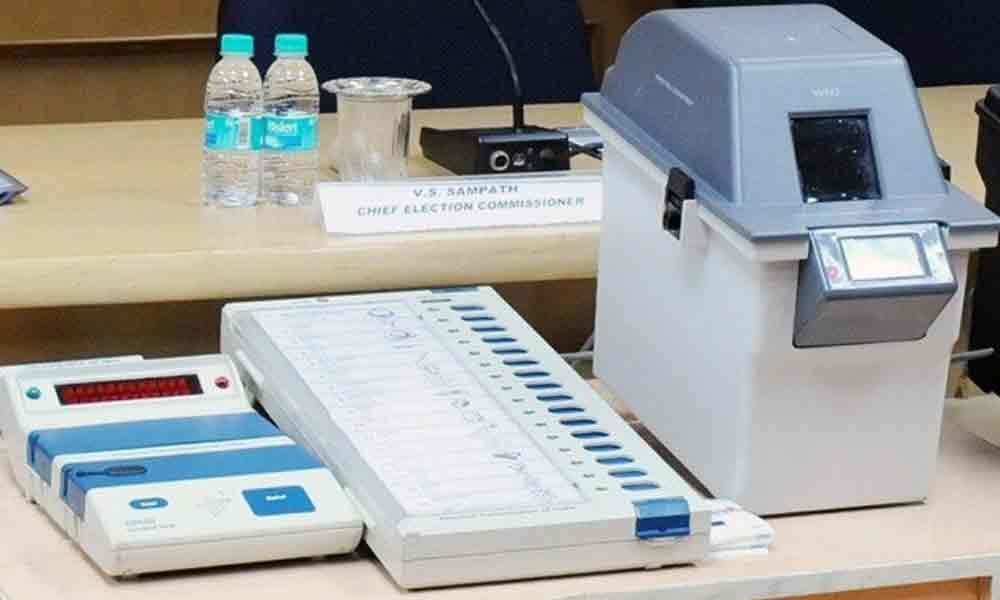Live
- Bihar: Deceased patient's eye missing, RJD condemns incident at Nalanda Medical College
- Rammurthy Naidu's Last Rites Held in Naravari Palli
- PM Modi receives ceremonial welcome in Abuja, begins bilateral talks with Nigerian President Tinubu
- Goods traffic doubles on the new railway freight corridors
- BGT 2024-25: I’d like to see him make one more Test ton in Australia, says Johnso
- Harassment due to ED raids forced Kailash Gehlot to quit, hints Kejriwal
- Kailash Gehlot exit: BJP goes on the offensive against 'corrupt' AAP govt
- PM Modi pays homage to ‘the great’ Balasaheb Thackeray on his death anniversary
- One who cares for Delhi will not stay with gang of robbers: Sachdeva on Gahlot's resignation
- From Self-Doubt to Self-Love: Vange Cain’s Inspirational Path
Just In

The long wait is over. It's now time for celebration for some and time for introspection for others as the fate of 8,000 candidates who are in the...
The long wait is over. It's now time for celebration for some and time for introspection for others as the fate of 8,000 candidates who are in the fray for 542 Lok Sabha seats would be announced today. This election gains importance because of various factors.
First, it was a long-drawn battle, second, it was considered to be a Dharma Yudh between the BJP and 22 political parties which were against the Prime Minister Narendra Modi. It also assumes importance as highest ever voter turnout was witnessed this time making everyone confident that they are the winners.
Added to that the psephologists, astrologists and analysts had a field day giving their own analysis and interestingly no two analysis tallied. It was clear that the politicians, the leaders and all those who came with predictions were confused lot. The voter however appeared to be clear in his mind and that he refused to reveal which led to wild speculations.
The credibility of the EVMs and the Election Commission also came under cloud this time. The EC had refused to count all the VVPAT slips and even told the apex court that it was not possible. But then, finally on the intervention of the court, it had agreed to count randomly selected VVPATs from five polling booths per Assembly constituency which effectively means that out of nearly 10.3 lakh polling stations, the EVM-VVPAT matching will take place in 20,600 such stations.
This election also becomes special because the EC had never faced so much of criticism which had eroded its credibility. There was sharp criticism that the institution which is supposed to be an independent and apolitical body had turned into a sort of cheer leader for the government. The Opposition parties raised concern about it and certainly it is not out of place.
Unless some corrective measures are taken by the new government, it is certain that by the time the country goes to the next general elections, the democratic society would crumble and there can be no hope of neutrality.
The Election Commission's acts came in for criticism from scheduling of elections in seven long phases. It was alleged that it was to favour some political parties, to be more specific, the ruling party. The snail's pace with which it acted in taking action against certain parties when there were complaints of violation of Model Code of Conduct also drew criticism.
Transferring of officers, posting and suspending election observers, monitoring election expenses, not controlling fake news, allowing surrogate campaigns by giving a nod to leaders to visit religious shrines when MCC still in force, denying counting of VVPAT and so on had led to pointing fingers at the EC.
There have been several incidents where EC had acted swiftly on complaints filed by certain political parties while complaints by others were not even considered worth examining. What muddled the waters further was its failure to contain the content of campaign speech of Prime Minister Narendra Modi who sought votes in the name of religion and armed forces.
There were even some hoardings seeking votes for BJP citing the surgical strikes which was blatant violation of the Model Code of Conduct, but no visible action was taken. In States like West Bengal, the violence took place on large scale and the EC which failed to act effectively and had cut short the time for campaign.
EC must learn that the "freeness" and "fairness" of the elections are measured by the electoral rules, regulations, and their fair applications as well as the impeccability, autonomy, and effectiveness of the institution conducting the elections. It must not only be claimed but publicly reflected.

© 2024 Hyderabad Media House Limited/The Hans India. All rights reserved. Powered by hocalwire.com







